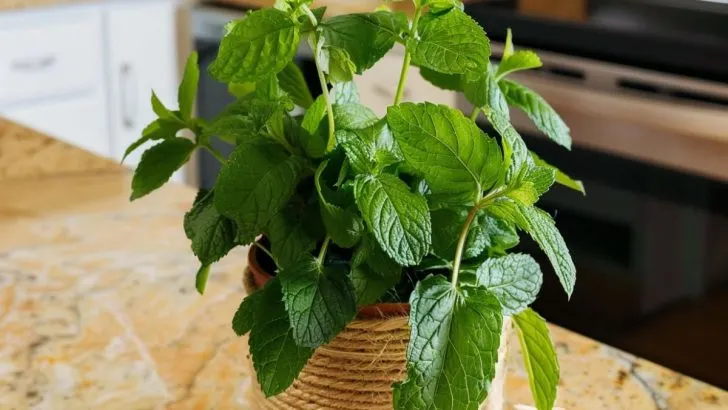Fruit flies can be a persistent nuisance in the kitchen, especially when attracted by ripe fruits and food scraps. These tiny pests multiply rapidly, turning a minor inconvenience into a major problem. Fortunately, there’s a natural, aesthetically pleasing way to combat these unwelcome visitors—using specific plants that repel them.
This article dives into how you can harness the natural properties of certain plants to keep your kitchen free from fruit flies. Not only do these plants offer practical benefits in deterring pests, but they also enhance the ambiance of your kitchen, making it a healthier and more inviting space.
Discover how these plant allies can transform your kitchen into a fly-free zone while adding a touch of nature’s beauty and fragrance to your home.
1. Basil: The Versatile Herb
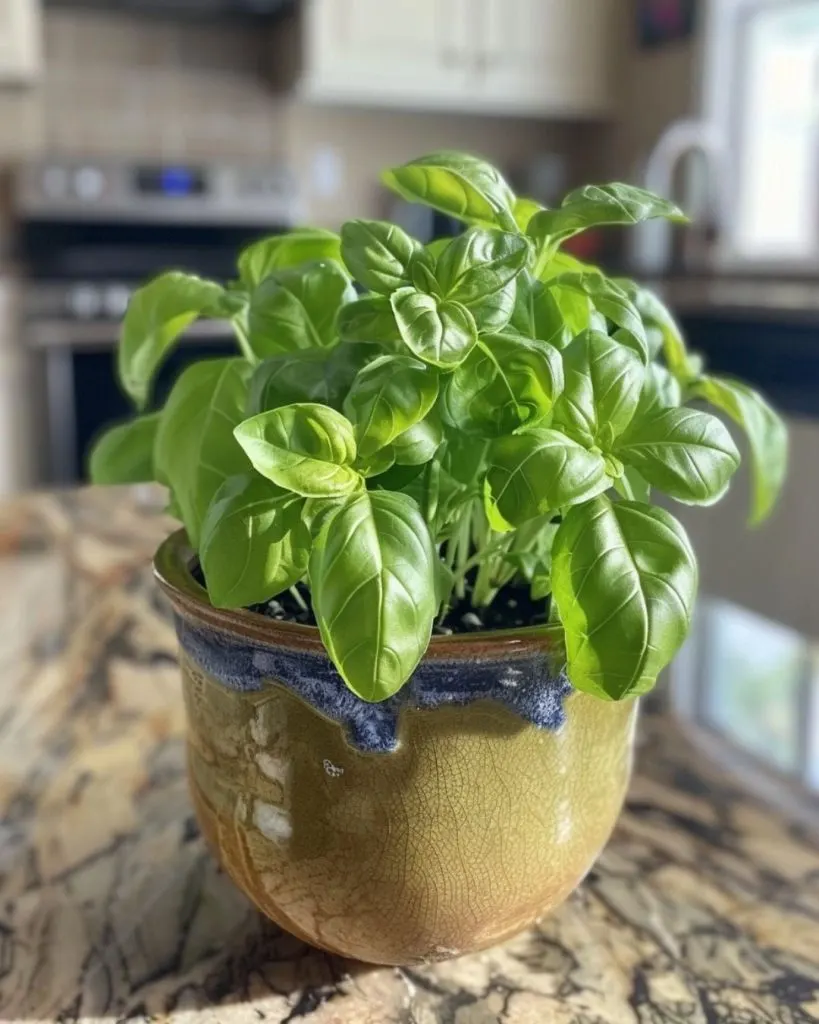
Basil is more than just a staple in your favorite Italian dishes—it’s a powerful natural insect repellent. The strong aroma of basil is particularly effective at keeping fruit flies at bay. Place a few pots of fresh basil near your fruit bowls or on windowsills to deter these pests. As a bonus, you’ll have a fresh supply of basil on hand for cooking, adding flavor to everything from salads to pasta.
Pro Tip: Pinch off the flowering tops of your basil regularly to encourage lush growth and a stronger scent.
2. Lavender: The Calming Defender
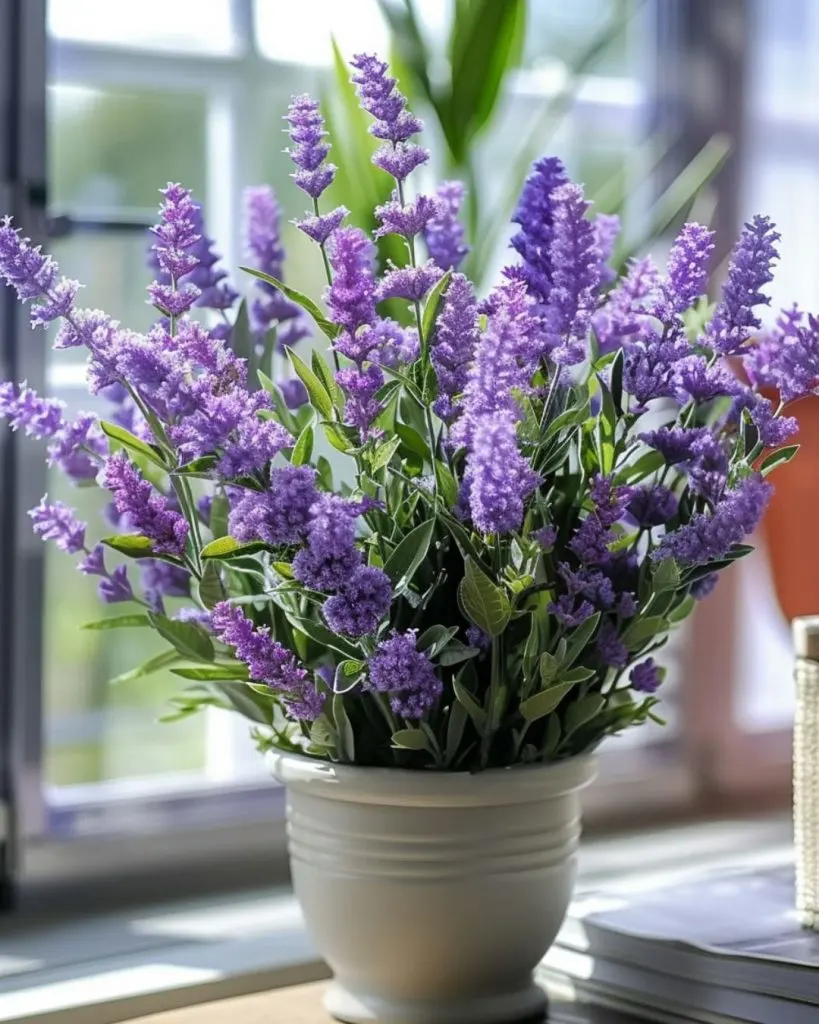
Lavender is known for its soothing fragrance, but this pleasant aroma is actually a natural deterrent for fruit flies. Keep lavender in decorative pots or hanging planters in your kitchen. Not only will it repel flies, but it can also help create a calming atmosphere in your home, ideal for stress relief.
Culinary Use: Incorporate dried lavender into homemade sachets or use it to flavor baked goods like shortbread cookies.
3. Mint: A Fresh and Potent Deterrent
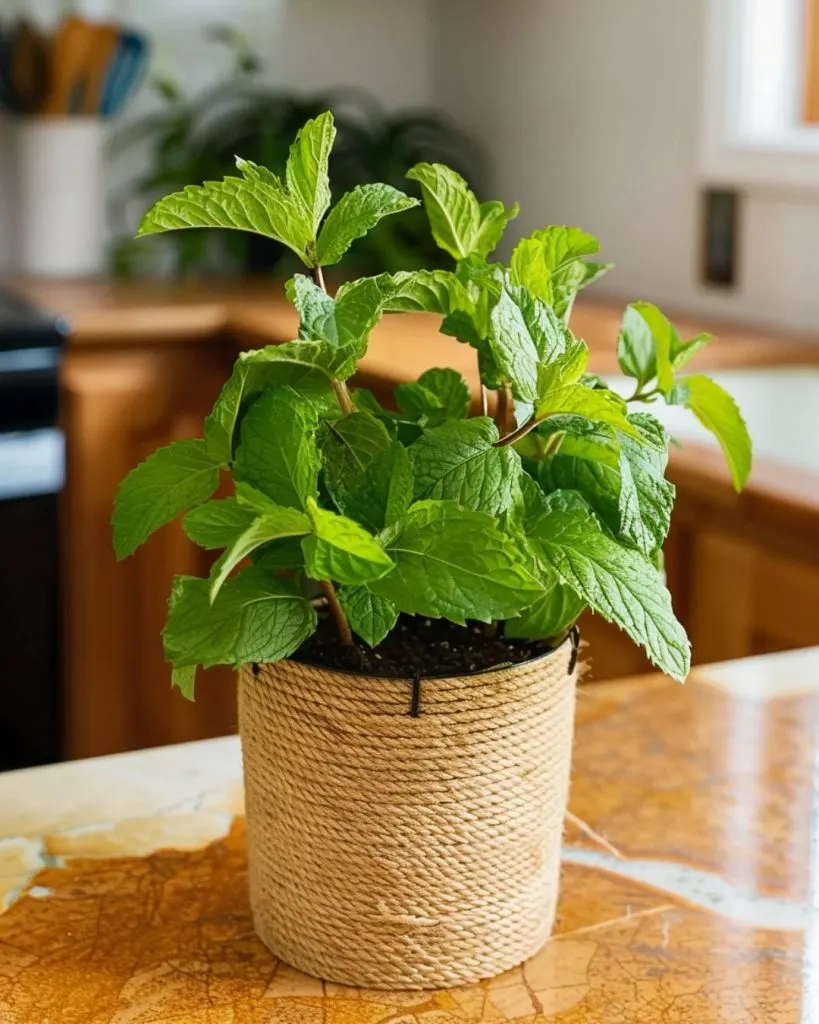
Mint’s sharp, refreshing scent is disliked by fruit flies, making it a must-have plant in the kitchen. Mint is incredibly versatile in the kitchen, perfect for teas, desserts, and even savory dishes. Keep it near your food prep areas to keep flies away while enjoying its culinary benefits.
Growing Tip: Mint spreads quickly, so it’s best grown in pots to control its growth and prevent it from overtaking other plants.
4. Rosemary: More Than Just an Herb
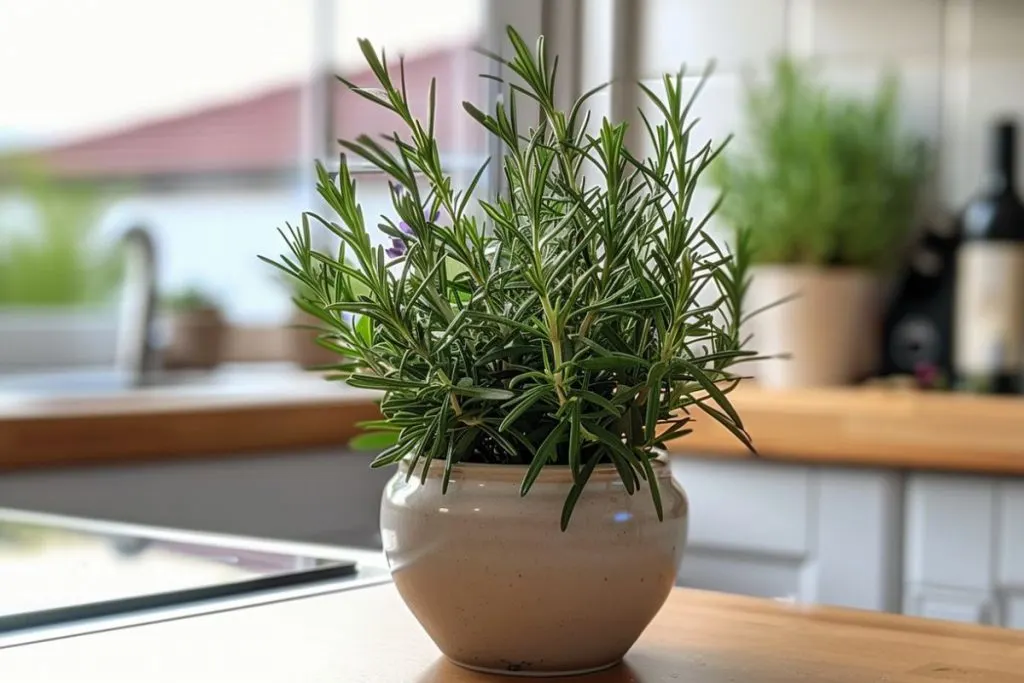
Rosemary’s intense, woody aroma is not only perfect for seasoning your roasts but also serves as a natural fruit fly repellent. Small rosemary bushes are ideal for indoor growing and can be pruned to maintain a compact shape, making them a practical and beautiful addition to your kitchen.
Creative Use: Try making rosemary-infused olive oil for a flavorful addition to your cooking.
5. Lemongrass: The Citrus Scented Guardian
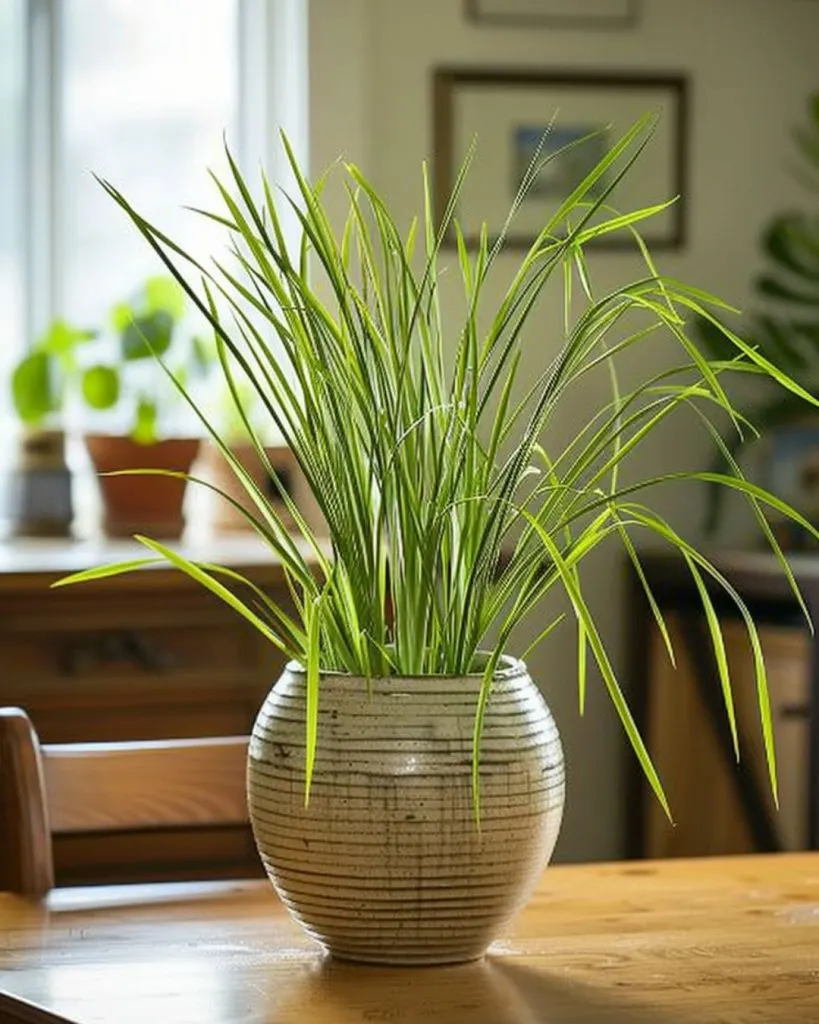
With its vibrant citrus fragrance, lemongrass is another excellent plant to keep fruit flies at bay. This plant can be easily grown in a small pot and is a wonderful addition to Asian-inspired dishes and homemade teas. Its zesty scent not only repels pests but also energizes your kitchen space.
Maintenance Tip: Trim lemongrass regularly to encourage new growth and a stronger scent.
6. Chives: The Subtle Protector
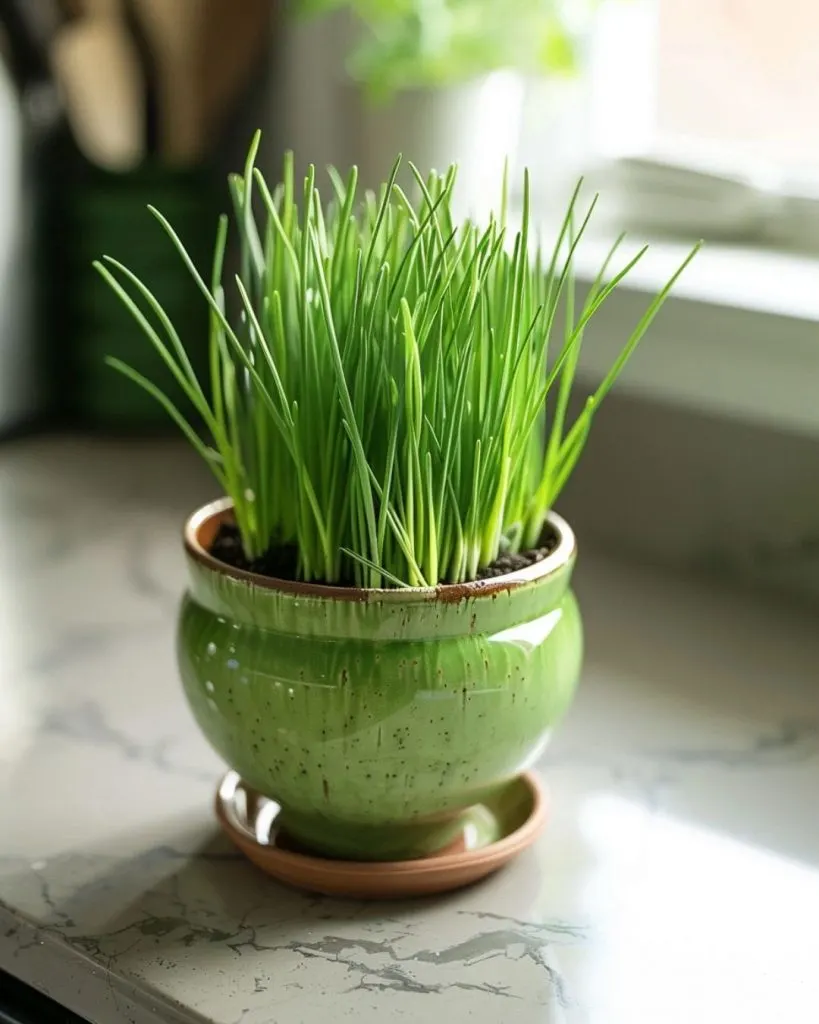
Chives might have a milder scent compared to other herbs, but they are still effective at deterring fruit flies. Their ease of growth makes them perfect for sunny kitchen windowsills, and they add a delicate onion-like flavor to many dishes.
Cooking Idea: Add freshly chopped chives to your scrambled eggs or baked potatoes for a subtle yet delicious flavor boost.
7. Marigold: The Colorful Defender
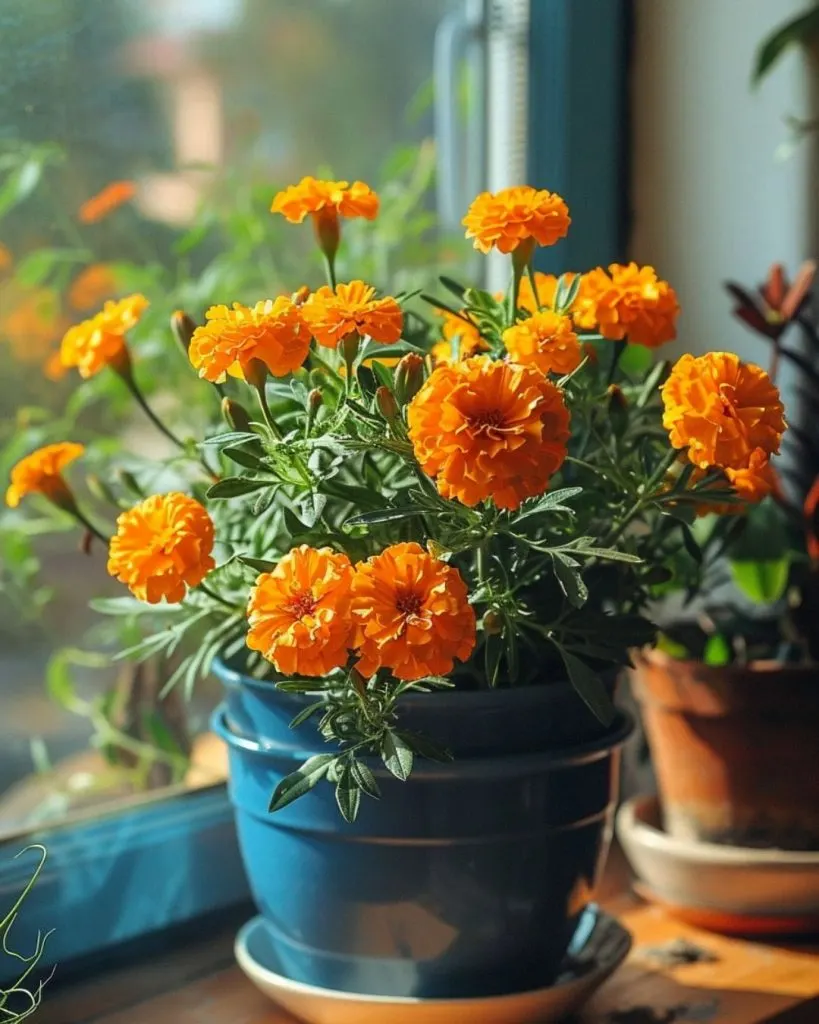
Marigolds, known for their vibrant colors, are not just garden plants. When grown indoors in a sunny spot, they can help keep fruit flies and other pests at bay. Their distinctive scent acts as a natural deterrent, making them a dual-purpose plant that adds beauty and function to your kitchen.
Did You Know?: Marigolds are also effective in repelling garden pests like aphids, making them a great companion plant outdoors.
8. Tansy: The Powerful Protector
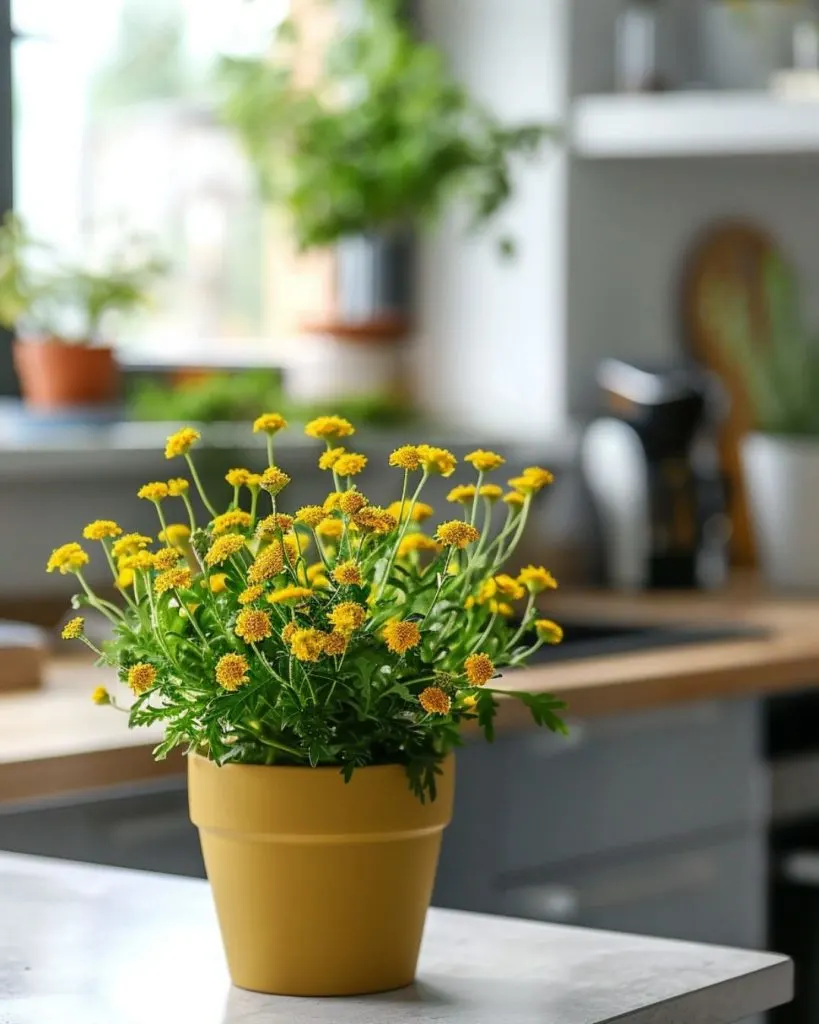
Tansy is a lesser-known plant that packs a punch when it comes to repelling insects, including fruit flies. While it can be a strong deterrent, tansy is also toxic if ingested, so it’s best kept out of reach of pets and children. Its inedible nature aside, tansy’s ability to repel flies makes it a valuable addition to your pest control arsenal.
Safety Note: Always handle tansy with care and place it in areas where it won’t be disturbed by pets or small children.
Crafting a Fly-Free Culinary Haven
By incorporating one or more of these plants into your kitchen, you’re not only fighting off fruit flies naturally but also enriching your living space with fresh scents and greenery. Choosing natural solutions over chemical sprays keeps your air cleaner and your kitchen healthier.
Select plants that complement your cooking style or add a refreshing fragrance to your kitchen for a functional yet beautiful solution to the common fruit fly problem.


